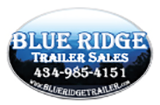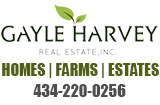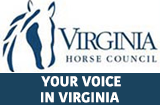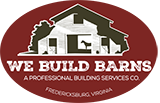ALL VIRGINIA PREMISES RELEASED FROM QUARANTINES IMPOSED BECAUSE OF EQUINE HERPES VIRUS-1
Submitted by: VTA/Elaine J. Lidholm
Phone: 804/786-7686
Email Address: vta(at)vabred.org
Date Added: 3/29/2007
Today, Dr. Richard Wilkes, State Veterinarian with the Virginia Department of Agriculture and Consumer Services (VDACS), announced that he has lifted the quarantine on the last Virginia premises affected by the neurological form of Equine Herpes Virus-1 (EHV-1). Except for quarantined premises, the state’s horse community had resumed normal activities earlier in the month, but now, everyone can breathe easier.
Immediately upon the report of EHV-1 on February 21, 2007, VDACS quarantined ten Virginia premises, including eight farms, the Marion duPont Scott Equine Medical Center (EMC) in Leesburg, and the Marine Corps Base in Quantico. State animal health officials began a rigorous surveillance program of the horses that had had contact with the Center, asking owners on quarantined farms to monitor temperatures twice daily and immediately report horses with elevated temperatures or any neurological signs. VDACS veterinarians tested horses showing any signs of possible EHV-1.
Dr. Wilkes cancelled public sales and auctions the first weekend in March and recommended that event planners consider carefully whether or not they would go ahead with scheduled events. Many voluntarily cancelled shows, trail rides or fox hunts in an effort to contain the spread of the virus.
“Virginia’s horse community was both responsive and responsible,” said Dr. Wilkes, “and their actions helped us contain the virus so that it did not spread beyond the ten contact premises in four counties near the EMC. The impact of EHV-1 on Virginia would have been far worse if the disease had spread to other parts of the state.”
Even though he has sounded the all clear signal, Dr. Wilkes cautions that there is always a risk of exposure to the EHV-1 virus because it can be present in the environment. Equine athletes and performance horses, horses that commingle with strange horses and horses that are shipped long distances appear to be most vulnerable. Horse owners need to continue practicing strict biosecurity. Detailed information is on the VDACS Web site at
http://www.vdacs.virginia.gov/animals/ehv.shtml. For many more biosecurity tips, please see the USDA Web site at: http://www.aphis.usda.gov/ publications/animal_health/content/printable_version/HorseBioSecurity_final.pdf.
|



